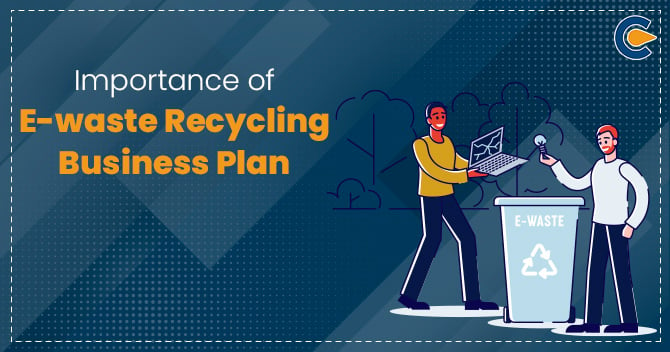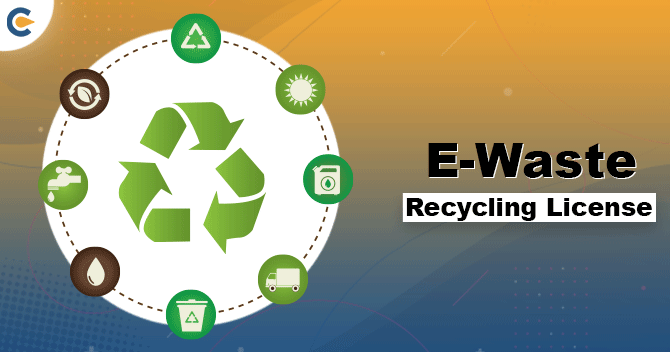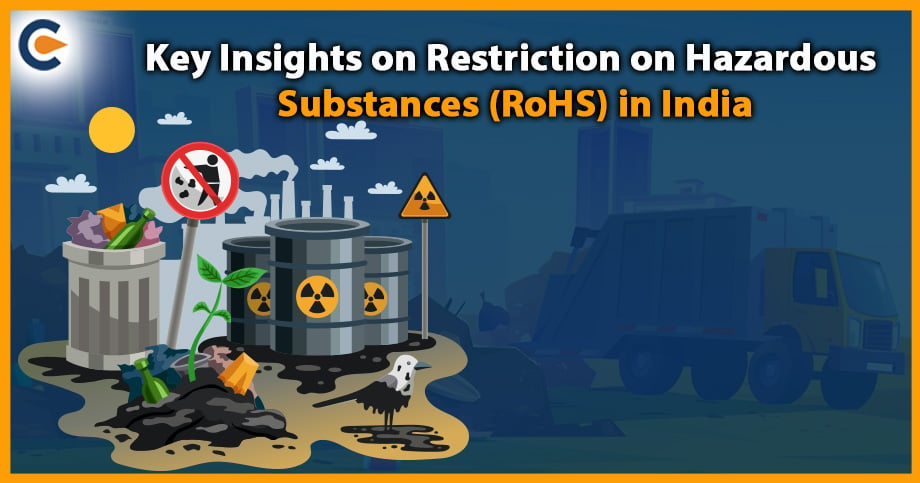When an individual or entity decides to set up an industry to recycle e-waste, it should first develop an e-waste recycling business plan. Such a plan is crucial for the long-term survival of the recycling industry.
Introduction to E-waste
E-waste consists of waste of any broken or unwanted electrical or electronic appliances. Many components of such waste are considered toxic and non-biodegradable. The sources of such e-waste are IT and Telecom Products; household electrical appliances; lighting products; electrical and electronic tools; electrical toys and sports products; medical devices; monitoring instruments; etc. E-waste contains different substances and chemicals that are toxic in nature. If it is not handled properly, then it has an adverse impact on humans and the environment; thus, there is a need to have a proper e-waste recycling business plan.
Effects of E-waste on the Environment and Human
E-waste has the presence of hazardous substances that are affecting the environment and humans. The followings are considered to be its effect on the environment and humans:
Effects on Environment
The effect of the hazardous and toxic substances of e-waste on the environment are:
- Groundwater pollution
- Acidification of soil
- Air pollution[1]
- Percentage of heavy metals found in landfills.
Effects on Human
The effect of the substances of e-waste on human health are as follows:
- Kidney damage
- Damage to the blood system
- Damage to the central and the peripheral nervous system
- Affects the Brain development of children
- Chronic brain damage
- Respiratory and skin disorders
- Asthmatic bronchitis
- Damage in DNA
- Problems in reproduction and similar development
- Damage to the immune system
- Lung Cancer
- Liver and spleen damage
- Heart damage
E-waste, if left open in the environment without recycling it then it will have all these adverse effects, and so the recycling of e-waste by creating an appropriate e-waste recycling business plan is very important.
Recycling of the E-waste
The management of e-waste is very important, and the best way to manage the limitless generation of e-waste is to recycle them. Presently the technologies involved in recycling the e-waste in India are E-waste trade value chain, environmentally sound e-waste treatment technology and CRT treatment technology. The treatment options available are landfilling and incineration in regard to the recycling of the e-waste. But before starting a recycling unit for e-waste, one must have an e-waste recycling business plan prepared because the recycling of e-waste is not very well for the pocket.
The processes under recycling of e-waste constitute a collection of e-waste, then storage, sorting, dismantling, separation, recovery of material, and at the end, the segregation and disposal of hazardous material.
The e-waste recycling business plan and its importance
The moment one considers starting a recycling business, they have to make a planned list of all the requirements for starting and running an e-waste recycling business, and that is what is called an e-waste recycling business plan.
The e-waste recycling business plan is a structured plan that the individual or entity, whoever decides to set up a unit of recycling, prepares before establishing such a unit. The plan comprises each and every detail related to the recycling plant/unit, including the collection from companies, removing the hard disk, semi-processed waste, unprocessed waste, etc. It even includes the revenue and costs. It is a complete road map of how things will work in the recycling unit. It has all the incentives, policies, visions, details related to the import of e-waste, finances, safety mechanisms, healthy work environment etc.
The main components of an e-waste recycling business plan are:
- Industry overview
- Summary of executives
- The products and services of the industry
- The vision and mission of the industry
- Complete business structure
- Role and responsibilities of all the staff and other officers
- The strength, weakness, opportunity and threat analysis
- Market analysis
- The target markets
- Sales and marketing strategy
- Sales forecast
- Publicity and Advertising strategy
- The pricing strategy
- The budget and expenditure of the industry
- Sustainability and expansion strategy
- All the legalities
- other checklists
The e-waste recycling business plan helps the industry in many ways; the most common ways are by deciding when and how they should start the business, organise the ideas to start and run the business in the best way and presenting the business idea to a lending institution such as a bank to get a loan.
Conclusion
The e-waste recycling business plan is the planned structure that an individual or entity prepares before setting up an e-waste recycling plant. The business plan covers all the detailed information regarding the starting and running of the business. It has full information on all the requirements, including financial expenditure to be needed by the recycling unit or plant. The business plan is very important to starting and setting up any business. It lays out the detailed structure of how things are going to work at the time of setting up and after setting up of any business entity.
Read our Article:E-waste auction in India











